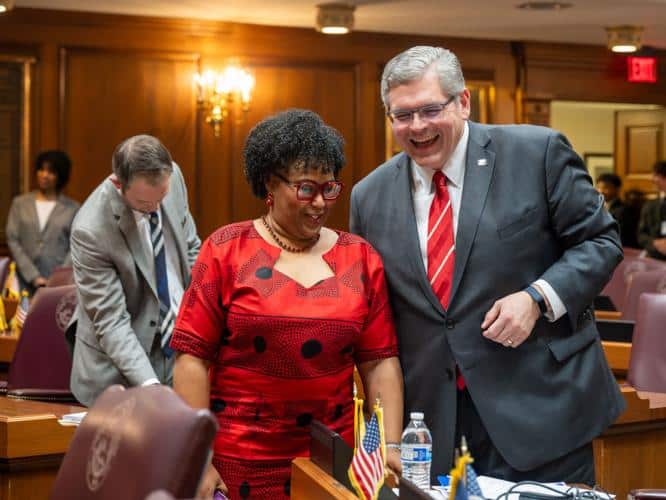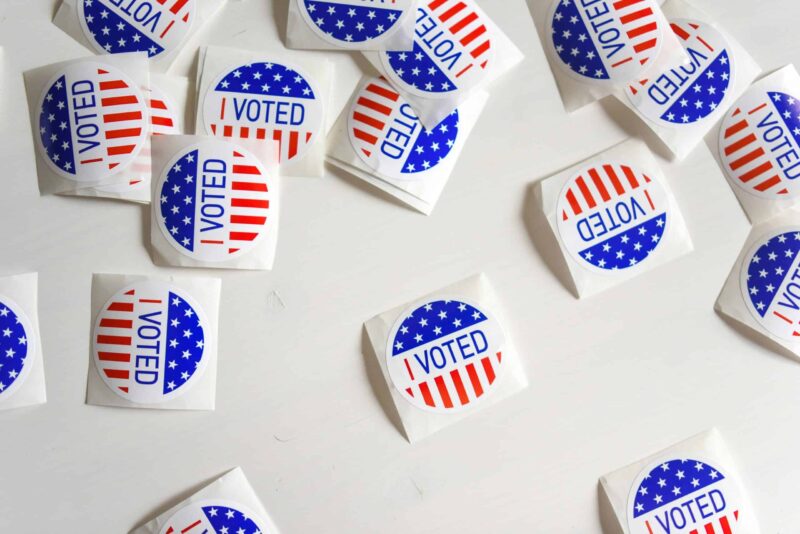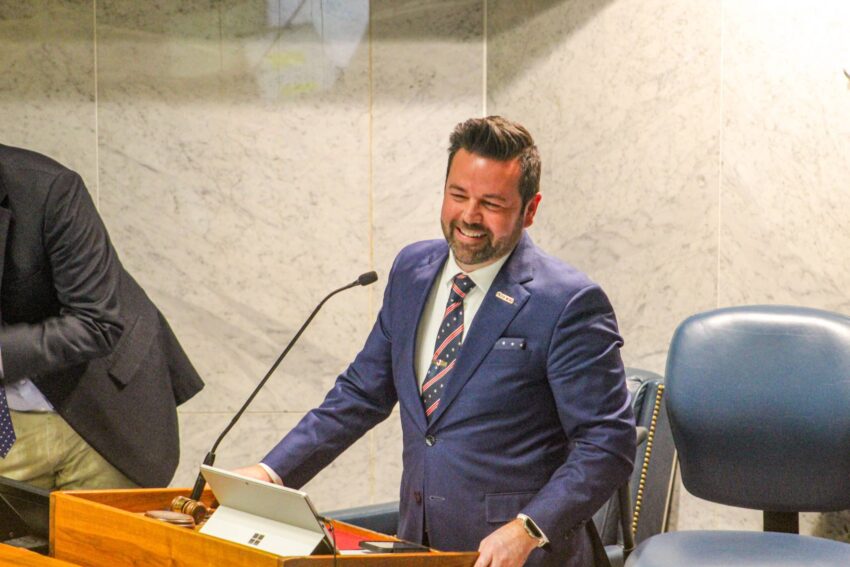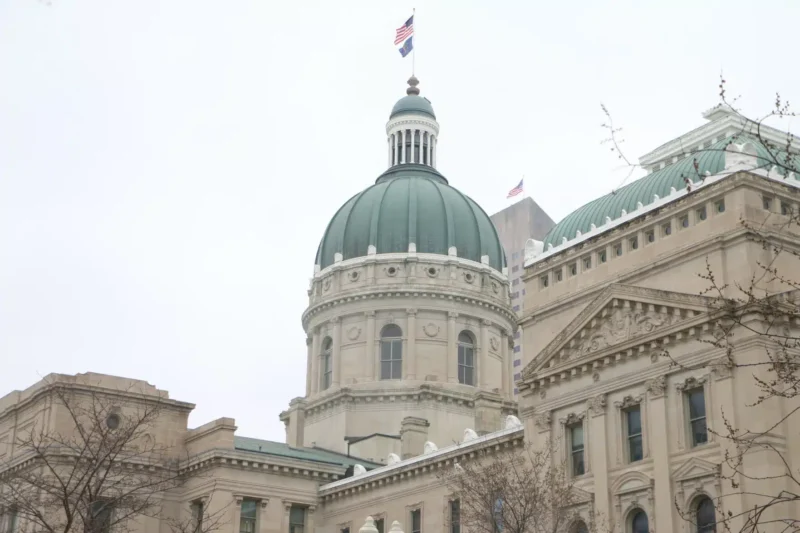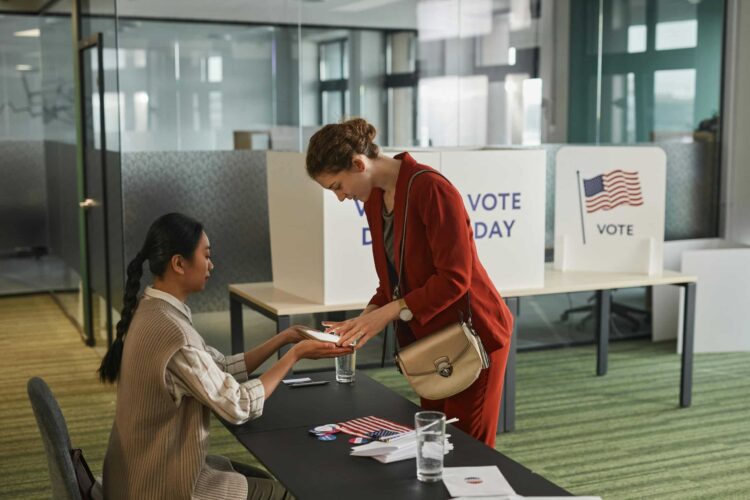The Indiana Citizen Education Foundation, represented by the Reporters Committee for Freedom of the Press, filed a lawsuit on Sept. 2 against the offices of Indiana Secretary of State and the Indiana Attorney General, seeking the list of Hoosiers voters sent to the federal government. (Photo/Marilyn Odendahl)
This story was originally published by TheStatehouseFile.com
By Anna Cecil
TheStatehouseFile.com
September 7, 2025
Political scientists and media law experts are reacting to The Indiana Citizen’s parent organization’s case against the offices of the Indiana attorney general and Indiana secretary of state for not allowing the news organization access to a list of nearly 600,000 Indiana voters.
Attorney General Todd Rokita and Secretary of State Diego Morales created the list in October 2024, saying they wanted to verify the citizenship status of those registered voters. The pair submitted the list to United States Citizenship and Immigration Services (USCIS) on Oct. 11 and asked the federal agency to check the legal status of the individuals.
Morales and Rokita claim they are not required to release the names under Indiana Code section 3-7-26.4-2, which prevents public access to voter rolls in most circumstances.
Gerry Lanosga, an associate professor at Indiana University who specializes in media law, said the case is important even if the court ultimately does not order the state officials to release the list. The lawsuit will continue to call attention to the lack of transparency on why the list exists in the first place and how they chose the names on it.
“We are in a general atmosphere of secrecy and lack of transparency at many levels of government,” Lanosga said. “There’s a desire from them to keep this a secret for whatever reason, political reasons, and that’s problematic. … These public officials are constitutionally elected state officers. They owe the public a real, detailed explanation of how they arrived at these particular sets of voters.”
On top of transparency, Lanosga said the attorney general and secretary of state need to clarify that they are not attempting to suppress certain groups of voters by making a list of potential non-U.S. citizens.
Laura Wilson, associate professor of political science at the University of Indianapolis, said concealing the list of 585,774 registered voters, and the creation of it in the first place, could contribute to voter intimidation, especially within certain racial and ethnic groups.
When Morales and Rokita compiled the list, they said it included voters who did not present a driver’s license number or Social Security number during the registration process. They said this may indicate the individuals are not U.S. citizens and, therefore, they are ineligible to vote.
Wilson speculated this could mean The Citizen—which is a publishing partner of The Statehouse File—is seeking access to the list because it may have surnames with common racial or ethnic backgrounds.
Essentially, this means Morales and Rokita could have compiled a list of people who they think might vote for Democrats. While the two Indiana Republicans are likely not concerned about their own re-elections, as Indiana has had a GOP supermajority for many years, Wilson said the list falls in line with a national trend of suppressing Democratic voters.
The Brennan Center for Justice at New York University School of Law, in its 2024 “Guide to Laws Against Intimidation of Voters and Election Workers,” warned voters about “mass challenges,” especially those that come shortly before an election, as a way to keep eligible voters away from the polls.
“Efforts to gather information on voters and build a record for mass voter challenges can be used to disenfranchise eligible voters by seeking to remove them from the rolls before an election,” the report said.
Lists of voters, possibly like the one Morales and Rokita created, could intimidate certain groups into staying home on Election Day
“Intimidation, though it’s highly subjective, … feels incredibly influential in decisions to register, to show up to vote and political participation in general,” Wilson said. “You should not have any formal, informal, subjective, objective, explicit, implicit barriers that prevent an individual from doing so (voting).”
Along with ensuring they are not trying to suppress or intimidate their constituents, Lanosga emphasized, Indiana state officials should always make openness a priority.
“Public business should be public,” Lanosga said. “And public officials should strive as best as they can to release information and be transparent to the public about what they’re doing, and I don’t think that has happened in this case.”
Anna Cecil is a reporter for TheStatehouseFile.com, a news site powered by Franklin College journalism students.
📩 Sign up to have the top stories from around Indiana sent to your inbox every week.


